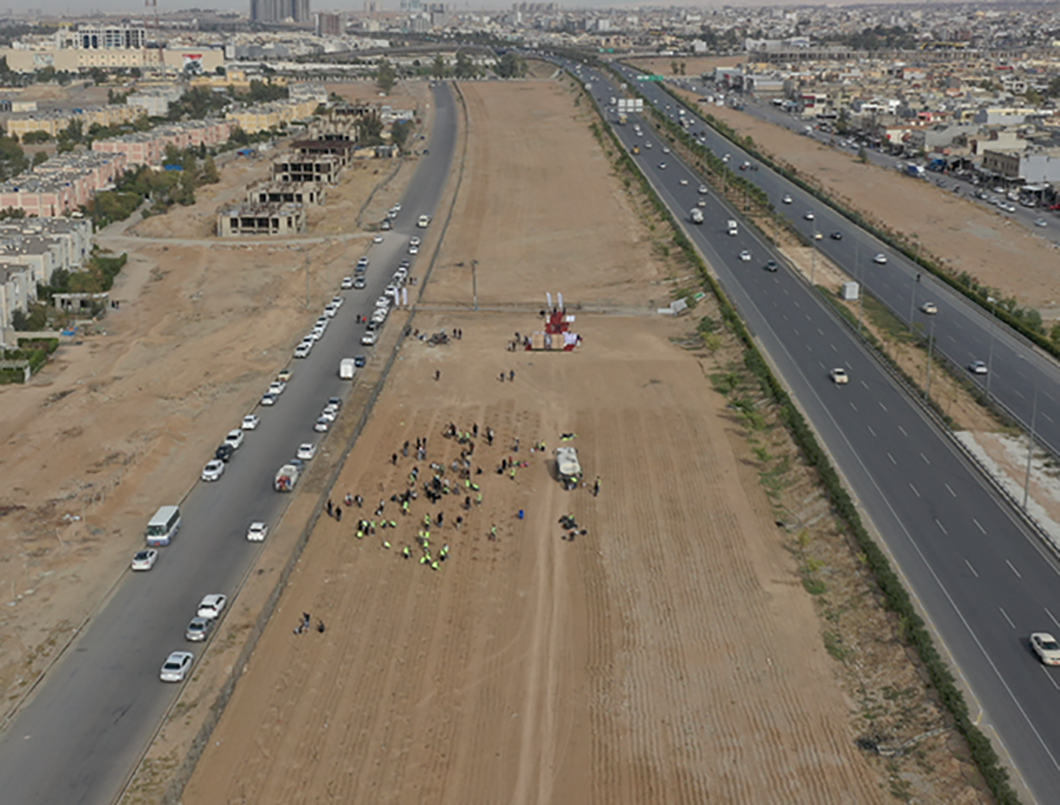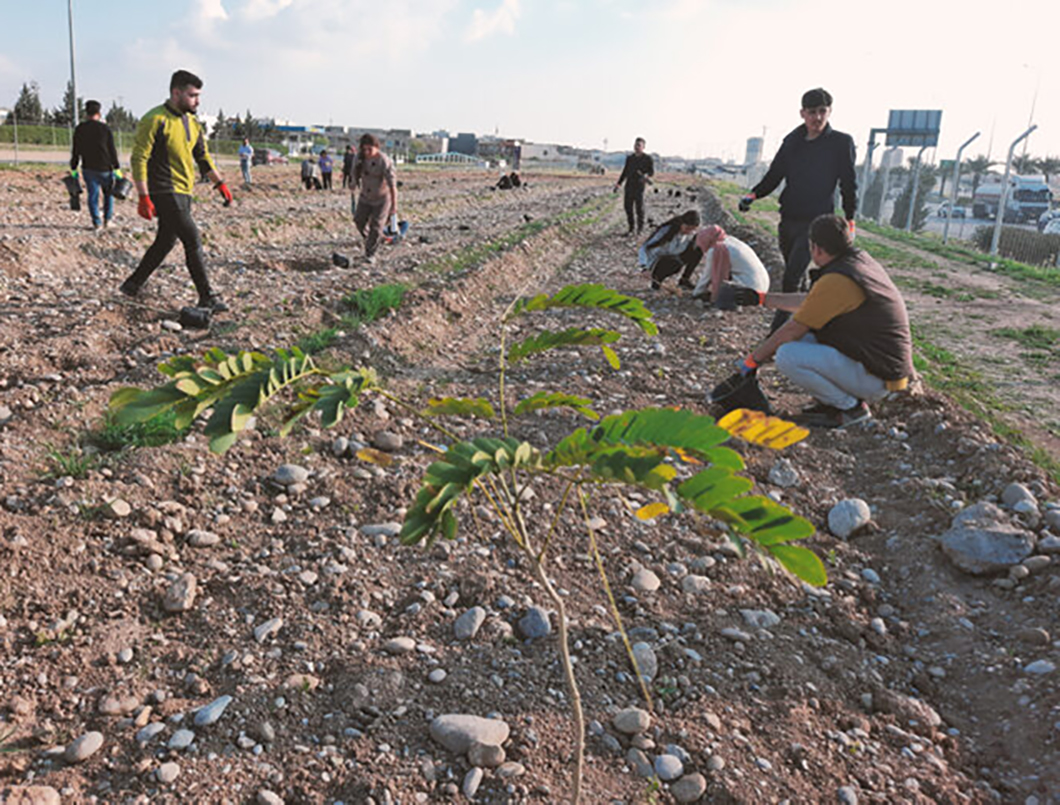
Close

Approach Words: Participatory Approach, Sustainability, Urban Resilience
Public Policy Instruments: Communicative, Physical Intervention
The Million Oaks project, an urban afforestation project in Erbil city1, is a planting initiative established to respond to rapid urbanization2 and climate change3. It does so by creating new green spaces and restoring the forests across the Kurdistan region of Iraq4. It is worth noting that this planting initiative is a pilot project of the ‘Erbil 2030 Strategy’i and sets out to become a role model for other cities in the region5.
The project aims to improve the quality of life in Erbil City by increasing the natural forestation areas in the region6, while also promoting climate resilience by leveraging the inherent abilities of trees to capture and purify air pollutants, and by preserving biodiversity and facilitating the creation of new habitats for diverse species, contributing to an enhanced overall resilience of the city’s ecosystem7.

Title: Rendering of 120-meter street in Erbil, displaying what the area will look like once the planted trees have grown
Source: Click Here

Title: Plantation Works in the Site
Source: Click Here

Title: community engagement during the project implementation in the Street.
Source: Click Here

Title: community engagement during the project implementation in one of the Public Spaces in Erbil
Source: Click Here
To meet the above-mentioned objectives, the Million Oaks Project strategically introduced 315,000 oak trees as a first phase. These formed an urban oasis equivalent to 65 football fields, right in the heart of Erbil to provide cooling and shading throughout the city. Additional 700,000 trees are expected to be planted by the end of 20238. Of these, 80% are native oaks, and the remaining 20% are other variety of species to maintain ecological equilibrium9.
The project also consists of a comprehensive management plan. Over a span of three years, the forest will undergo meticulous monitoring and irrigation to ensure the robust development of the oak trees. Once it reaches maturity, the forest is anticipated to achieve self-sustainability, offering a habitat for various species, as well as providing numerous community benefits. Site selection and the required demarcation and fencing has already been completed, with an established project team responsible for post-completion monitoring of the plantation10.
The project has also ensured that the planning process is participatory, by engaging the community in the implementation phase. By conducing awareness campaigns and inviting the community to participate in the plantation process, the project motivates people to actively contribute to greening initiatives in their neighborhoods11. This collaborative effort not only seeks to enhance Erbil’s quality of life but also ensures a sustainable legacy for future generations to benefit from12.

Owner/Developer (Public)


Consultant/Designer

Funder

Contractor/Implementer
The project will be implemented over these key phases:
The project is initiated by Hasar Organization in partnership with Rwanga Foundation, and in collaboration with Kurdistan Regional Government, with the support of the city’s Ministry of Municipalities and Tourism18 . Additionally, the project engages with prominent corporations and contributors such as the Cihan University, that played a role in providing the supportive environment need to accommodate the project. Rwanga Foundation has played the role of a key partner, and the Kurdistan Regional Government has strengthened the initiative with crucial land allocations. In the latest development, ShaMaran Petroleum Corporation has supported the project as a corporate sponsor19.
Project Link
https://hasar.org/2023/millionoaks-erbil-urban-sustainability-300k-trees-planted/
Endnotes
References